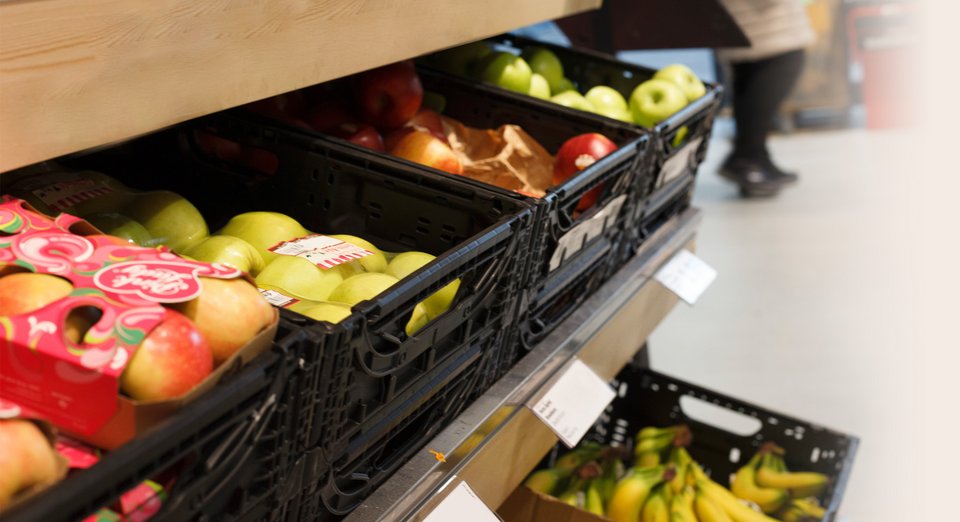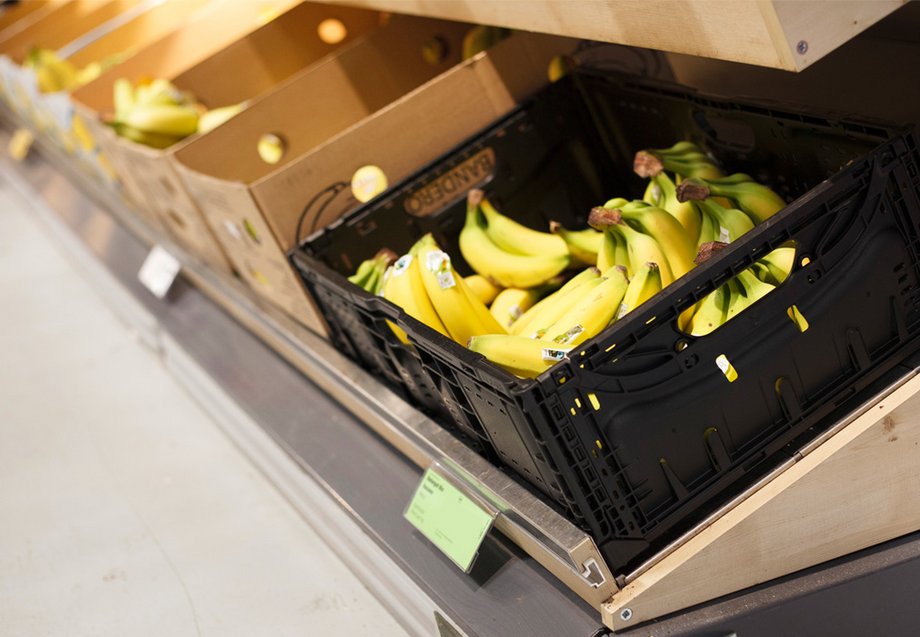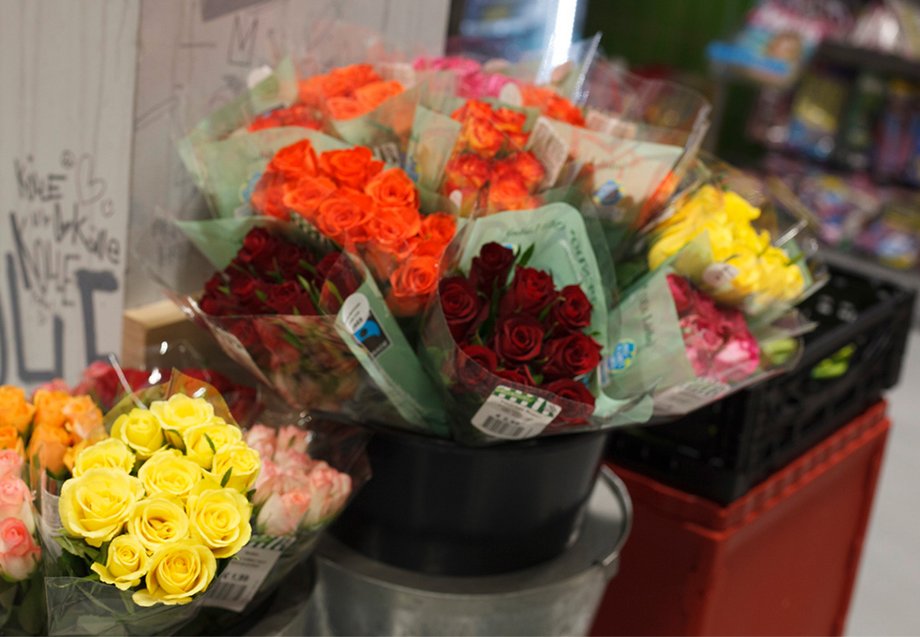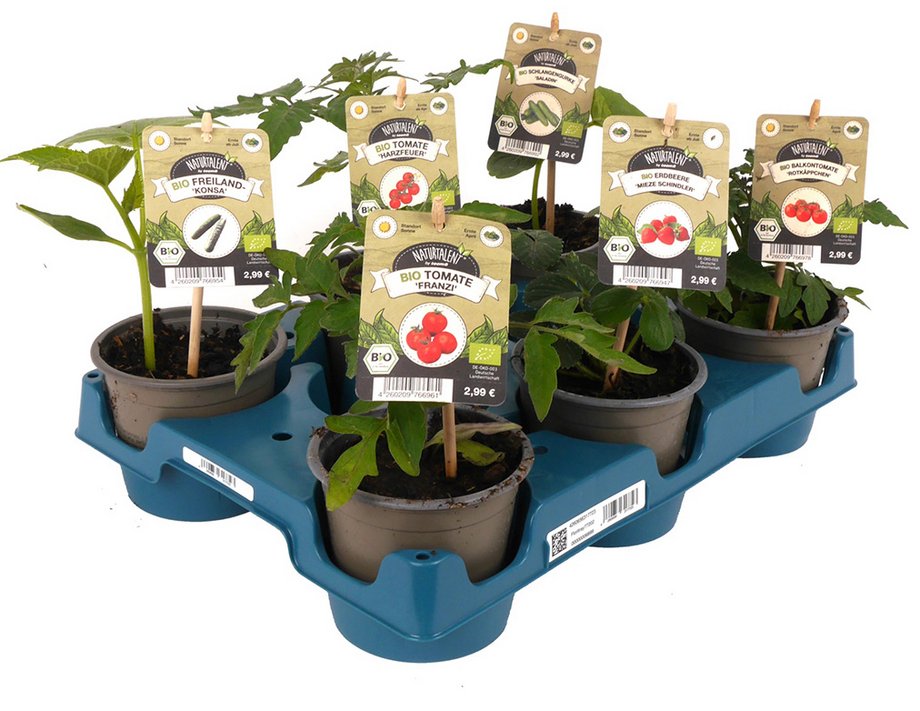
Becoming more sustainable in everyday business: PENNY is the first grocery retailer to use an innovative reusable solution for cut flower buckets and banana crates - breaking new ground as an industry pioneer. one spoke to Nico Wittlich, Acting Head of Ultrafresh Fruit, Vegetables, Flowers, Plants at PENNY. And toom is also scoring points: with the Floritray reusable solution for transporting plants.
one: Mr Wittlich, why is the switch to a reusable solution for bananas and flowers important for PENNY?
Nico Wittlich: Finding reusable solutions for packaging is a building block of our endeavours in terms of Sustainability. Reusable packaging is particularly important for bananas and flowers because no other German food retailer uses it across the board. PENNY has a clear competitive advantage here.
one: What advantages do the reusable bins and crates offer?
Wittlich : We save a large amount of disposable plastic and cardboard and replace these with reusable solutions that can be used for many years. The sustainable banana crates that we use for organic bananas can be used for ten years. The used trays are 100 per cent recycled to produce new trays. They have been in use at PENNY throughout Germany since September 2022. The reusable cut flower buckets will gradually be added to the range from March and will be available in all PENNY stores from the second quarter. We are thus replacing the one million disposable buckets used to date.

one: How high are the savings in concrete terms?
Wittlich: We anticipate annual savings of up to 140 tonnes of plastic and 500,000 disposable banana cartons. In addition, up to 54 g ofCO2 emissions per kg of bananas are saved compared to cardboard packaging.
one: How did the cooperation with IFCO come about?
Wittlich : As the world's leading supplier of reusable packaging, IFCO worked with us to find a solution to switch our organic banana range to IFCO crates. Beforehand, there were many endeavours and tests to find the switch. This is also due to the special quality requirements of bananas. The distribution of the crates to the farms in South America also had to be organised. Together with the purchasing department, fruit logistics and IFCO's experience, we were able to find a solution. For the flower buckets, both REWE Group and IFCO came up with the idea of developing a reusable solution for cut flowers. Marc Roßmann and Saskia Pfeiffer from the CM team, together with Ralf Philippi and Mirko Sauerbach from Purchasing and active support from IFCO, tested the feasibility and defined the requirements for a bucket. The reusable buckets are a new joint development by PENNY and IFCO that is not yet available in the German food retail sector. This makes us the first retailer to convert its cut flower range to a reusable solution.

one: Why has one-way packaging been used up to now and why wasn't a reusable solution introduced earlier?
Wittlich: New processes have to be found for handling, and many interfaces and producers in the countries of origin have to be integrated, which takes time. A completely new and as yet non-existent solution had to be developed for the reusable cut flower bucket. One of the biggest challenges was cleaning. It had to be tested that no cross-contamination of different types of flowers could occur. This is the basic prerequisite for the long shelf life of the cut flowers.
The problem with banana trees is, on the one hand, the processing in the producing countries, which we are still working on in some cases. On the other hand, the coordination of the crate properties was also particularly challenging in order to fulfil the requirements of banana ripening.
one: Are there other areas in which reusable solutions are being sought?
Wittlich: In our fruit, vegetables, flowers and plants division, we are continuing to focus on converting as much secondary packaging as possible to reusable systems. We have already converted the majority of items, such as tomatoes, citrus fruit and potatoes, to reusable systems. In the future, we want to expand the reusable buckets for cut flowers to include smaller flowers, as we still have a 20% share of flowers that are delivered in disposable buckets. We are working on a solution for this.
The sustainable reusable banana crates can be used for around ten years. The polypropylene used ensures long-lasting colour intensity and UV protection and is 100% recyclable. The reusable crate is optimised for the requirements of the bananas, from transport to presentation on the market. This leads to fewer markdowns. The shatterproof reusable buckets for cut flowers replace the approximately one million disposable buckets previously used and save 140 tonnes of plastic - per year.
The standard eight and ten-litre bins will make the start from March 2023. The remaining special sizes will gradually be replaced by the reusable bucket. The bucket was recently honoured by Deutsche Umwelthilfe (DUH) with the Reusable Innovation Award 2022.
toom: Floritray as a more sustainable reusable branch solution
 Photo: toom Baumarkt DIY store
Since April last year, toom has been the first in the industry to use the Floritray reusable solution for transporting plants. The project, which toom piloted with 60,000 pallets, will be expanded this year by 300,000 pallets for a further pot size.
Photo: toom Baumarkt DIY store
Since April last year, toom has been the first in the industry to use the Floritray reusable solution for transporting plants. The project, which toom piloted with 60,000 pallets, will be expanded this year by 300,000 pallets for a further pot size.
Reusable solutions will also determine the future in the green sector. Where plants were previously transported in disposable pallets, which were ultimately disposed of as plastic waste, the cycle can now be closed with the Floritray reusable pallet. In addition to plastic waste, this also savesCO2 emissions.
"Floritray is a tried-and-tested solution on the market, and it's time for other companies in the industry to jump on board to generate added value for customers and the environment quickly and in a solution-oriented manner," says Dominique Rotondi, Managing Director of Purchasing and Logistics at toom Baumarkt DIY store. "We are convinced that Floritray fulfils all the requirements to become a reusable industry solution."
